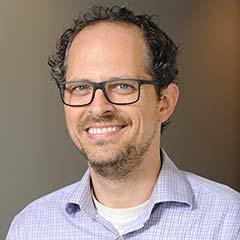Law Strategic Plan: Increasing Our Scholarly Impact
In an age of superficiality, Fordham Law School nurtures a depth of understanding that is urgently needed. Our faculty produces work that sheds light on some of the most difficult issues we face as a society. Our traditional scholarly excellence in core disciplines such as business law, constitutional history, evidence, intellectual property, and legal ethics is strong, and newer vistas such as immigration, information law, urban law, race and the law, and statutory interpretation are ever-growing.

“Faculty here are writing papers that are being cited by the U.S. Supreme Court. We’re playing a role in how laws are written and interpreted. And that benefits the public and our students alike.”
– John Pfaff
Professor of Law
To harness and expand the relevance, rigor, and reach of faculty scholarship, the Law School will do the following:
- Strengthen our world-class faculty through the hiring and retention of first-rate scholars.
- Nurture groundbreaking scholarship by creating new faculty chairs, which not only recognize outstanding scholarship and teaching but also enable faculty members to continue to advance cutting-edge theoretical and doctrinal work.
- Foster innovative scholarship by providing interdisciplinary research opportunities, recognizing superlative scholarly contributions, and maintaining an excellent, service-oriented, and technologically sophisticated law library.
- Support and encourage faculty members to advance law-reform efforts by working with courts, legislatures, and policymakers and by participating in model rules and restatement projects, judicial conferences, and policy debates.
- Promote and recognize outstanding student scholarship while embracing new models of scholarly communication for our student-edited law journals.
"I litigated more than a dozen strike suits, but the strike-suit industry continued to grow until Professor Sean Griffith and the Fordham team got involved in a small number, and they changed the law. That's scholarly impact."
– James C. Maroulis ’94
Managing Counsel, Oracle